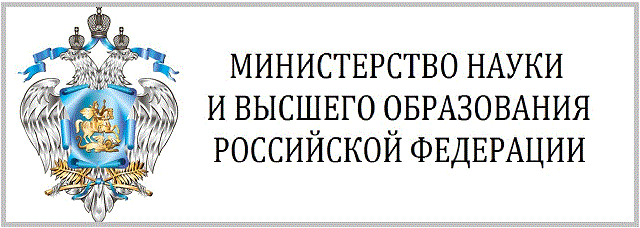Студенческая предметная олимпиада по иностранному языку
в системе среднего профессионального образования Санкт-Петербурга
состоится 14 октября в здании СПбГБПОУ «Академия управления городской средой, градостроительства и печати» по адресу: В.О. 5 линия д.28А в 10.00. Начало регистрации участников в 9.30.
Количество часов на выполнение заданий: 3,5 ч.
Конкурсное задание включает в себя следующие разделы:
- Теоретическое задание
- Практико-ориентированное задание
Критерии оценки
- Теоретическое задание
Теоретическое задание представлено в форме лексико-грамматического теста, включает в себя вопросы следующих грамматических разделов:
- Временные формы глаголов
- Модальные глаголы
- Косвенная речь
- Степени сравнения прилагательных
- Страдательный залог
- Герундий, инфинитив
- Сложные предложения
- Существительное
- Проблемы артикля
- Фонетика и орфография
На выполнение тестового задания отводится максимально 30 мин.
Тестовое задание состоит из 30 вопросов открытого и закрытого типов, максимально оценивается 30 баллами.
- Практико-ориентированное задание
Практико-ориентированное задание состоит из двух разделов:
- задания на проверку навыков чтения и понимания прочитанного
- творческое задание – построение диалогов между участниками Олимпиады.
При выполнении задания первого раздела конкурсантам будет предложено:
- прочитать текст объемом 400-450 слов и установить соответствие между заголовками и абзацами;
- прочитать текст объемом 150-200 слов и выбрать ответ, соответствующий содержанию.
На чтение текстов и выполнение упражнений отводится 30 минут.
При выполнении задания второго раздела конкурсантам будет предложено составить диалог по предлагаемой теме.
Время, отводимое для устного ответа: до 3 минут диалогической речи + 10 минут для ознакомления с заданием и составления диалога.
- Критерии оценки
Система оценивания.
3.1. Критерии оценки теоретической части.
- Лексико-грамматический тест: максимальный балл – 30. За каждый правильный ответ дается 1 балл.
3.2. Критерии оценки практико-ориентированной части.
- Задания на чтение и понимание прочитанного: максимальный балл – 30. За каждый правильный ответ дается 3 балла.
- Творческое задание: максимальный балл – 40.
Моделирование ситуации оценивается по следующим критериям (см. таблицу критерии оценки ситуационного диалога):
- Содержание (максимальное количество баллов – 10):
- все аспекты задания обсуждены
- дана хорошая аргументация
- высказывание связное и логичное
- Взаимодействие с собеседником (максимальное количество баллов – 10):
- участник вступает в разговор
- поддерживает разговор
- Лексическое оформление речи (максимальное количество баллов – 10):
- лексика использована в соответствии с заданной ситуацией
- словарный запас адекватен поставленной задаче
- Грамматическое оформление речи (максимальное количество баллов – 10):
- грамматические единицы использованы адекватно требуемой ситуации
- грамматические единицы использованы корректно
|
Критерии оценки ситуационного диалога |
|||
|
Содержание |
Взаимодействие с собеседником |
Лексическое оформление речи |
Грамматическое |
|
Задание полностью выполнено: цель общения успешно достигнута, тема раскрыта в заданном объеме. (9-10 баллов) |
Демонстрирует способность логично и связно вести беседу: начинает, при необходимости, и поддерживает ее с соблюдением очередности при обменен репликами, проявляет инициативу при смене темы, восстанавливает беседу, в случае сбоя. (9-10 баллов) |
Демонстрирует словарный запас, адекватный поставленной задаче. (9-10 баллов) |
использует грамматические структуры в соответствии с поставленной задачей; практически не делает ошибок. (9-10 баллов) |
|
Задание выполнено: цель общения достигнута, однако тема раскрыта не в полном объеме. (6-8 баллов) |
В целом демонстрирует способность логично и связно вести беседу: начинает, при необходимости, и в большинстве случаев поддерживает ее с соблюдением очередности при обмене репликами, не всегда проявляет инициативу при смене темы, демонстрирует наличие проблемы в понимании собеседника. (6-8 баллов) |
Демонстрирует достаточный словарный запас, в основном соответствующий поставленной задаче, однако наблюдается некоторое затруднение при подборе слов и отдельные неточности в их употреблении. (6-8 баллов) |
Использует структуры, в целом соответствующие поставленной задаче; допускает ошибки, не затрудняющие понимания. (6-8 баллов) |
|
Задание выполнено частично: цель общения достигнута не полностью, тема раскрыта в ограниченном объеме. (3-5 баллов) |
Демонстрирует неспособность логично и связно вести беседу: не начинает и не стремится поддерживать ее, не проявляет инициативы при смене темы, передает наиболее общие идеи в ограниченном контексте; в значительной степени зависит от помощи со стороны собеседника. (3-5 баллов) |
Демонстрирует ограниченный словарный запас, в некоторых случаях недостаточный для выполнения поставленной задачи. (3-5 баллов) |
Делает многочисленные ошибки или допускает ошибки, затрудняющие понимание. (3-5 баллов) |
|
Задание не выполнено: цель общения не достигнута. (0 – 2 балла) |
Не может поддерживать беседу. (0-2 балла) |
Словарный запас недостаточен для выполнения поставленной задачи. (0 -2 балла) |
Неправильное использование грамматических структур делает невозможным выполнение поставленной задачи. (0 – 2 балла) |
Пример конкурсного задания
Вариант 1
Part 1. Vocabulary and grammar
Supply the correct answers to the tasks given (1-30).
Write down your answers (LETTERS A-E or WORDS) in the Answer Sheet.
1. Find in which line ‘A’ has the same pronunciation in every word.
a. certain, aim, bait, fatal, bail, to separate
b. to estimate, baby, fate, bakery, to bathe
c. to appreciate, to evaluate, separate, private, to prevaricate
2. Choose noun(s) meaning PERSON.
- man
- teacher
- home
- office
- table
3. Choose countable noun(s).
a. fork
b. chair
c. note
d. oil
e. love
4. Complete the sentences.
Is there (1) … for me to sit here?
Our house has seven (2) … .
- room b. rooms
5. Write down the plural form of the noun.
ox –
6. Decide on the tense(s) to be used in this situation.
Normally I (finish) work at 5.00, but this week I (work) until 6.00 to earn a bit more money.
a. Present Simple only
b. Present Continuous only
c. Present Simple and Present Continuous
7. Decide what verb(s) is /are regular.
a. write
b. teach
c. sell
d. drink
e. work
8. Choose the order tenses are used in the sentence.
A young man _1_ (to run) out into the street. He _2_ (to carry) a strange placard.
a. 1. Past Simple, 2. Past Continuous
b. 1. Past Continuous, 2. Past Simple
c. 1. Past Continuous, 2. Past Continuous
9. Write down the verb in brackets in Past Simple, Past Continuous or Past Perfect.
When we reached the field the game already … . (start)
10. Complete the sentence using the verb in brackets in Passive.
Many accidents ... by dangerous driving (cause).
11. Choose the variant that CAN’T be used in the sentence.
These plants … three times a week.
a. you should water b. can be watered c. should be watered
12. Choose what translation is wrong.
Вот то, что нужно сделать.
a. This is the thing which must be done.
b. This is the thing to be done.
c. This is the thing that will be done.
13. Choose a correct sentence in reported speech.
Peter said, “My sister is learning to cook”.
a. Peter said that his sister was learning to cook.
b. Peter said that my sister was learning to cook.
c. Peter said that his sister is learning to cook.
14. Complete the sentence using the verb in brackets.
James Smith decided … his book to his friend. (dedicate)
15. Complete the sentence using the verb in brackets.
He offered to buy my old car, if I didn’t mind … (wait) a month for the money.
16. Complete the sentence using the verb in brackets.
Please go on … (write).
17. Complete the sentence using the verb in brackets.
There is an interesting article in the paper today. It is worth … (read).
18. Choose the correct variant.
Yesterday I found … wallet in the street.
a. the b. a c. Ø
19. Choose the correct variant.
We had … soup for lunch.
a. hot delicious some b. some hot delicious с. some delicious hot
20. Choose the correct variant.
Margaret is older ... Elizabeth
a. as b. than c. of
21. Choose the correct variant.
Athens is … from London than Rome is.
a. farther b. far c. farthest
22. Choose the correct variant.
We met a lot of people … we were on holiday.
a. while b. during c. for
23. Choose the correct variant.
We … English.
a. are not studied b. have studied c. don’t study
24. Choose the correct variant.
Have you made your bed ...?
a. already b. yet c. still
25. Choose the correct variant.
My elder brother left school ... three years ago.
a. since b. for c. Ø
26. Choose the correct variant.
Maria … English for two years.
a. has been learning b. has learning c. learns
27. Choose the correct variant.
The old gentleman doesn’t go out in winter. He … out when the weather … warmer.
a. will go, gets b. will go, will get c. won’t go, won’t get
28. Choose the correct variant.
He asked me to lend him $ 10. I (1) … give $10, but I (2) ... lend him $5, and he was grateful.
a. was able to b. could not
29. Choose the correct variant.
Mr. Brown said the manager would be back in London …
a. tomorrow b. the next day c. the day after tomorrow
30. Choose the correct variant.
You … ring the bell, I have a key.
a. must b. mustn’t c. need d. needn’t
Part 2. Reading
Task 1. Read the text below and match the headings (A-G) with paragraphs 1-6 in the text. There is one extra heading which will not be used.
Write down your answers (LETTERS A-G) in the Answer Sheet.
a. Poor communication
b. Helpful method
c. Past hobby
d. Body language
e. Enjoyable games
f. Health problems
g. More imagination
- In just a few years mobile phones have become a common sight everywhere. Walk past any cafe and you will see people chatting on their phones or sending text messages. However, some people are concerned that the signals these phones send out may be bad for our health. They worry that holding a mobile close to your head might have an effect on your brain. So, it may be a good idea to use your ordinary phone when you can.
- We learn a lot by reading, but what if you can't see the words on the page? Many blind people can read braille. Braille is a system of writing using raised dots on the page that you can feel with your A Frenchman called Louis Braille invented it in 1821, when he was just 12 years old. His system makes life easier for many thousands of blind people all over the world.
- When we talk to someone, only a small part of our meaning is in what we say. Some people say that as little as 7% of our message is contained in our words. We use our hands to express ourselves and we use our faces to show that we are listening or to show how we feel. Our faces and our hands can also show things that we might want to hide, like the fact that we are lying, for example.
- People can now use the Internet and e-mail to communicate with each other cheaply and quickly. Twenty years ago, however, this wasn't possible. In those days in Britain, some people used amateur radio to contact people all over the country, and even around the world. They had special radios in their houses that sent out radio signals. They contacted each other to exchange news about their lives and about the weather, or even to play games such as chess.
- One of the most interesting types of radio programme is radio drama. Although some radio stations only broadcast music, some also produce plays for their listeners. Many people prefer listening to a play on the radio to watching it on TV because they can be more creative. On TV, the programme-makers decide exactly what a place or a person looks like. On radio, though, you can imagine it any way you like.
- Before the invention of radio, it was almost impossible to communicate over large distances. The only way to communicate with people far away was to send a message or a letter with a person. People lit fires on hills as a signal to each other, but it wasn't a very good way of communicating. It was very difficult to find out what was happening in distant places and news often took weeks or even months to travel around the world.
Task 2. Answer all questions following the passage on the basis of what is stated or implied in that passage. Choose the one best answer, (LETTERS A, B, C, or D), to each question. Then, on your answer sheet, find the number of the question and fill in the space with the letter that corresponds to the answer you have chosen.
In an effort to produce the largest, fastest, and most luxurious ship afloat, the British built the Titanic. It was so superior to anything else on the seas that it was dubbed "unsinkable." So sure of this were the owners that they provided lifeboats for only 950 of its possible 3,500 passengers.
Many passengers were aboard the night it rammed an iceberg, only two days at sea and more than half way between England and the New York destination. Because the luxury liner was traveling so fast, it was impossible to avoid the ghostly looking iceberg. An unextinguished fire also contributed to the ship's submersion. Panic increased the number of casualties as people jumped into the icy water or fought to be among the few to board the lifeboats. Four hours after the mishap, another ship, the Carpathia, rescued the survivors – less than a third of those originally aboard.
The infamous Titanic enjoyed only two days of sailing glory on its maiden voyage in 1912 before plunging into 12,000 feet of water near the coast of Newfoundland, where it lies today.
- Which of the following is not true?
- Only a third of those aboard perished.
- The Carpathia rescued the survivors.
- The Titanic sank near Newfoundland.
- The Titanic was the fastest ship afloat in 1912.
- Which of the following did not contribute to the large death toll?
a. panic b. fire c. speed d. Carpathia
- How many days was the Titanic at sea before sinking?
a. 2 b. 4 c. 6 d. 12
- The word unextinguished means most nearly the same as
a. indestructable c. undiscovered
b. uncontrollable d. unquenched
Part 3. Speaking
You are going to make a dialogue about friendship. You will have to start in 10 minutes and will speak with your partner for not more than 3 minutes.
Remember to say:
- why do people need friends;
- can you imagine your life without friends (why/why not);
- what is more important to you: your friend’s character or appearance.

















